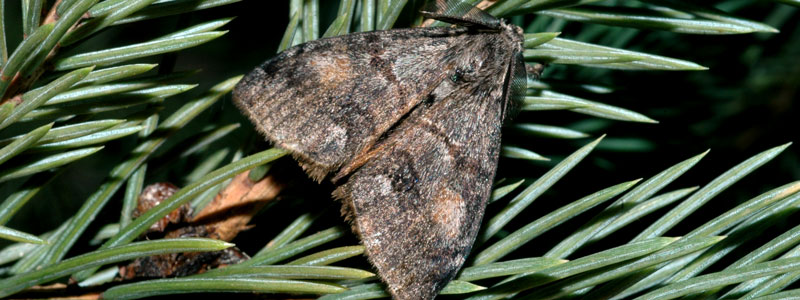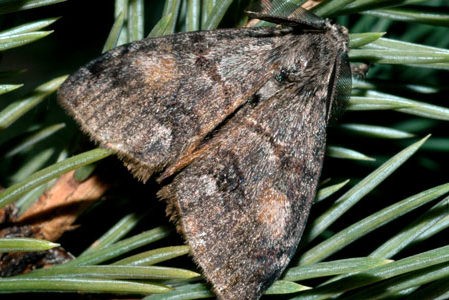 An infestation by Douglas fir tussock moths has claimed 13,000 acres of forest in Idaho, killing trees and driving the Idaho Department of Land to hold salvage timber sales. Infestations are cyclical, occurring every 8-12 years, and lasting 2-4 years. Though trees can sometimes recover, with severe infestations such as this one, damage can lead to tree death.
An infestation by Douglas fir tussock moths has claimed 13,000 acres of forest in Idaho, killing trees and driving the Idaho Department of Land to hold salvage timber sales. Infestations are cyclical, occurring every 8-12 years, and lasting 2-4 years. Though trees can sometimes recover, with severe infestations such as this one, damage can lead to tree death.
Douglas Fir Tussock Moths Are One of the Most Damaging Defoliators
Though the Douglas fir tussock moths prefer the Douglas fir, they will sometimes move to other conifer species such as true firs or spruce. The pests feed on foliage, beginning at the crown and tips and working toward the interior of the tree. Foliage shrivels and browns, leaving trees with a skeleton-like appearance as foliage disappears.
Dead Tree Dangers
Once the firs have succumbed to the moths, they pose a considerable safety risk. The timber poses a fire hazard intensified by the piles of needles left below trees. The dead timber also increases the risk of bark beetle attacks. Left to decompose, trees could fall onto roads. Once dead, the clock is ticking, with only around a year for potential harvesting before they begin to split and devalue.
Salvage Now Underway in Central Idaho
The timberland affected, in the Packer John State Park near Smiths Ferry, is now in the process of being cleared to protect area residents and make the most of a bad situation. Truckloads of lumber are making their way to sawmills. The nearly $3 million in proceeds from tree sales will benefit reforestation efforts, as well as area public schools. Logging is expected to continue until winter weather makes conditions too challenging for tree removal.
Hope for a Healthier Forest
Though the area will look a little bare for a while, plans to reforest the area will ensure a green landscape, rather than one darkened by dead trees. Douglas firs will be replaced with species less preferable to the Douglas fir tussock moth once the dead trees have been removed to thwart future infestations. The new trees will include a variety of species, such as lodgepole and ponderosa pine, western larch, and Engelmann spruce.
Readying to aid in reforestation efforts? Speed the process and protect your precious cargo with a ProLine shovel and grabber. Learn more about ways our nursery and tree transplanting tools can streamline your project today.

